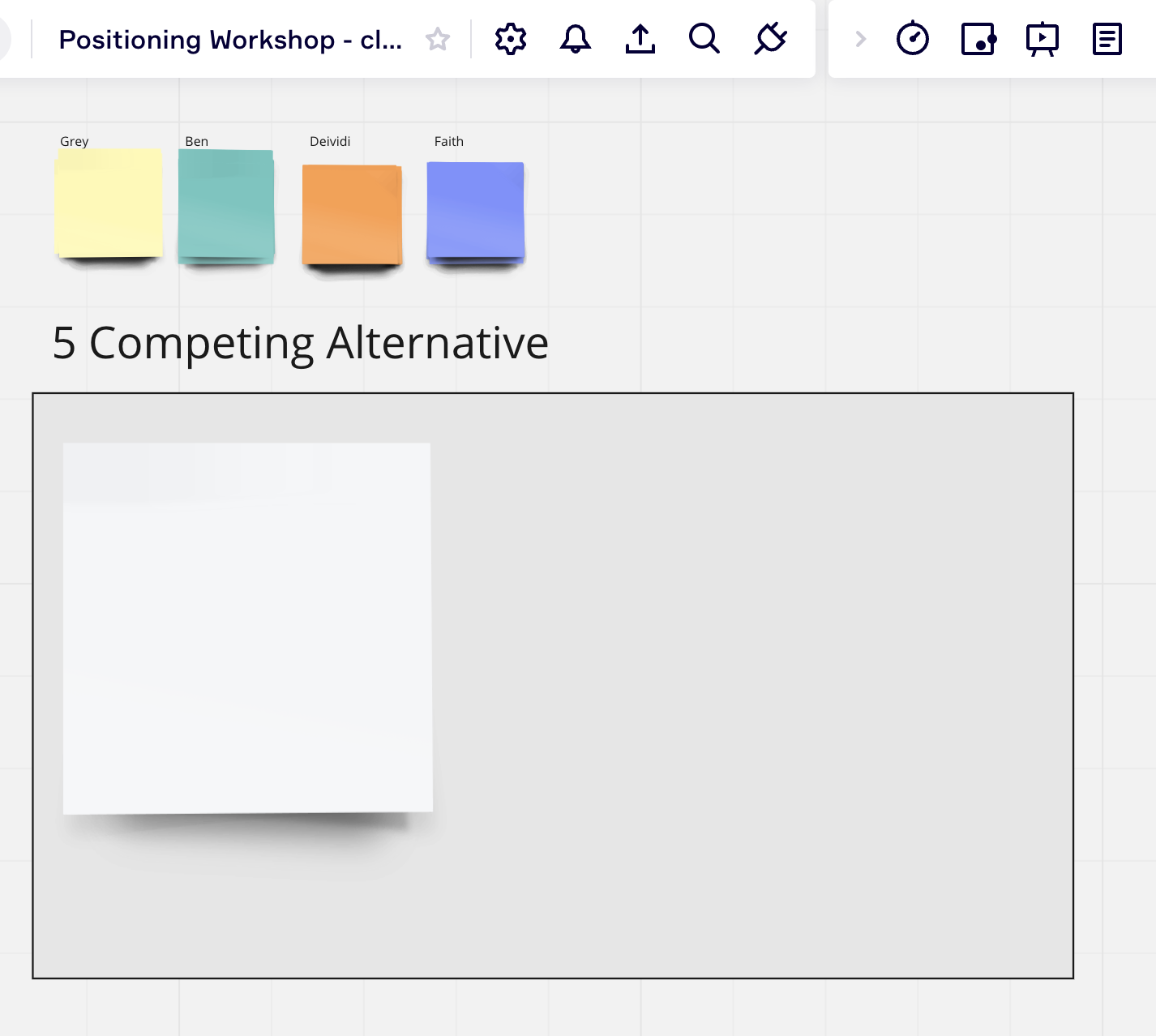How we ran virtual workshops (that worked)
We made key business decisions in virtual workshops, and all it took was a little preparation.
One refrain I hear over and over from remote leaders—voices in my own head included—is that nothing beats in-person white-boarding. When it comes to brainstorming sessions and real-time collaboration, the available tools for remote work seem to fall short.

While I don’t think it’s inherently worse, remote brainstorming certainly requires more intention and preparation. Up until March 2020, if one of us had a big idea we wanted to break open, we’d just saunter up to our colleagues’ desks and drag them into a two-hour conversation around a whiteboard. Convincing your teammates to stay on a Zoom for hours on end is a bit trickier.
Recently, we rewrote our company’s positioning statement—a pretty huge undertaking—all via virtual workshops. It was the first remote brainstorming process I’ve been a part of that really felt productive, and I’m excited to try the model again for more future-defining decisions. Here’s how we did it:
- We got really clear on what our output should be.
Without an output in mind, brainstorming sessions can easily become meandering conversations with no real result.
It was clear to us that our positioning statement needed attention when we started taking too long to make big, strategic decisions. Positioning statements give clarity around who you are, who you serve, how you serve them, and what makes you different from competitors. Without it, it’s impossible for your team to run in the same direction.
For this brainstorming session, the output for each day was a different component of our positioning statement, which includes:
- Target customer
- Statement of need or opportunity: what does your customer need?
- Product category: what is your business?
- Statement of key benefit
- Competing alternative
- Statement of primary differentiation
2. We were judicious with invites.
As a ~20-person company, it’s tempting to bring everyone in for high-level brainstorming. To get to bedrock on a concept, each person typically needs about a dozen chances to refine their thinking in public. So, if you think of a conversation like a tennis match, you need twelve volleys to really get anywhere. With 20 people, this is impossible. We decided to cap the sessions at four, with representatives from each core business function present. 3. We gave required pre-work.
This is critical. Without a shared framework for how to approach the task at hand, you’ll spend several hours getting to a decent starting point.
Here’s the homework we each completed before our first virtual workshop:
- We listened to this podcast episode and read this blog post by a consultant who leads companies through positioning exercises. This gave us a shared framework for what positioning statements are and what good ones look like.
- We read through customer interviews to understand how the market defines our positioning.
- We each took an independent stab at defining our positioning statement, then shared our responses with each other a day before our session. This forced us to come to the table with an opinion.
- We made a Miro board in advance that determined the cadence of the meeting.
Good: a virtual whiteboard to use during a remote workshop.
Better: a virtual whiteboard with a bit of structure and planning.
Knowing that some people are great on-the-spot thinkers and others need time to process, we made a Miro board with separate spaces for each output we needed to generate. Then, we gave each participant a stack of color-coded sticky notes to drag and drop into the brainstorming space.

We took five minutes at the beginning of each session to write down our ideas and drag them onto the board, then spent the rest of the time discussing what everyone shared. This process gave some structure to what can often feel listless. Plus, no one had a monopoly on the floor.
So, do remote brainstorming sessions take more effort? Well, maybe. But our takeaway is that the time spent planning them is better spent than hours in a conference room over cold coffee.
Interested in working with Gun.io? We specialize in helping engineers hire (and get hired by) the best minds in software development.
